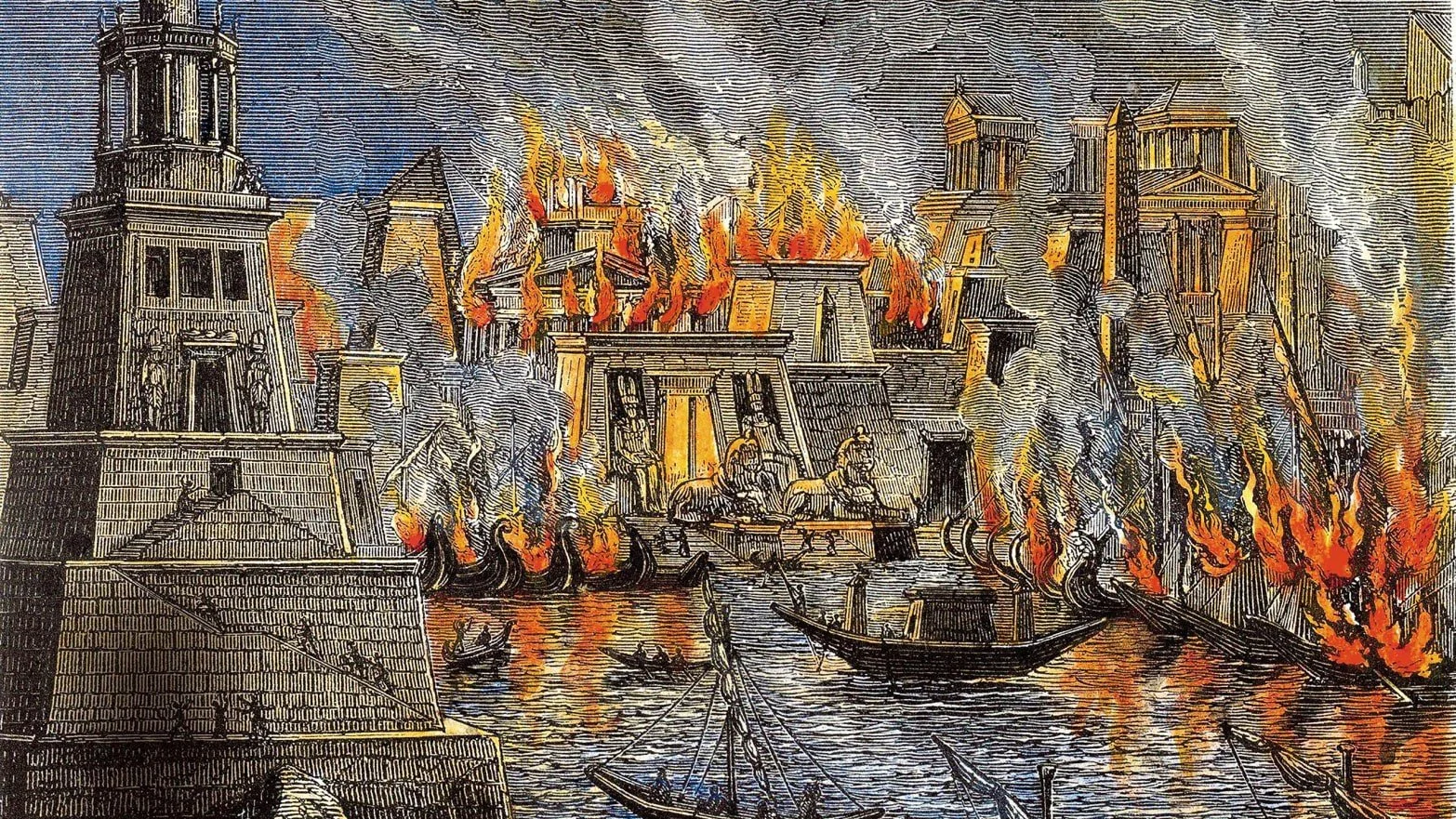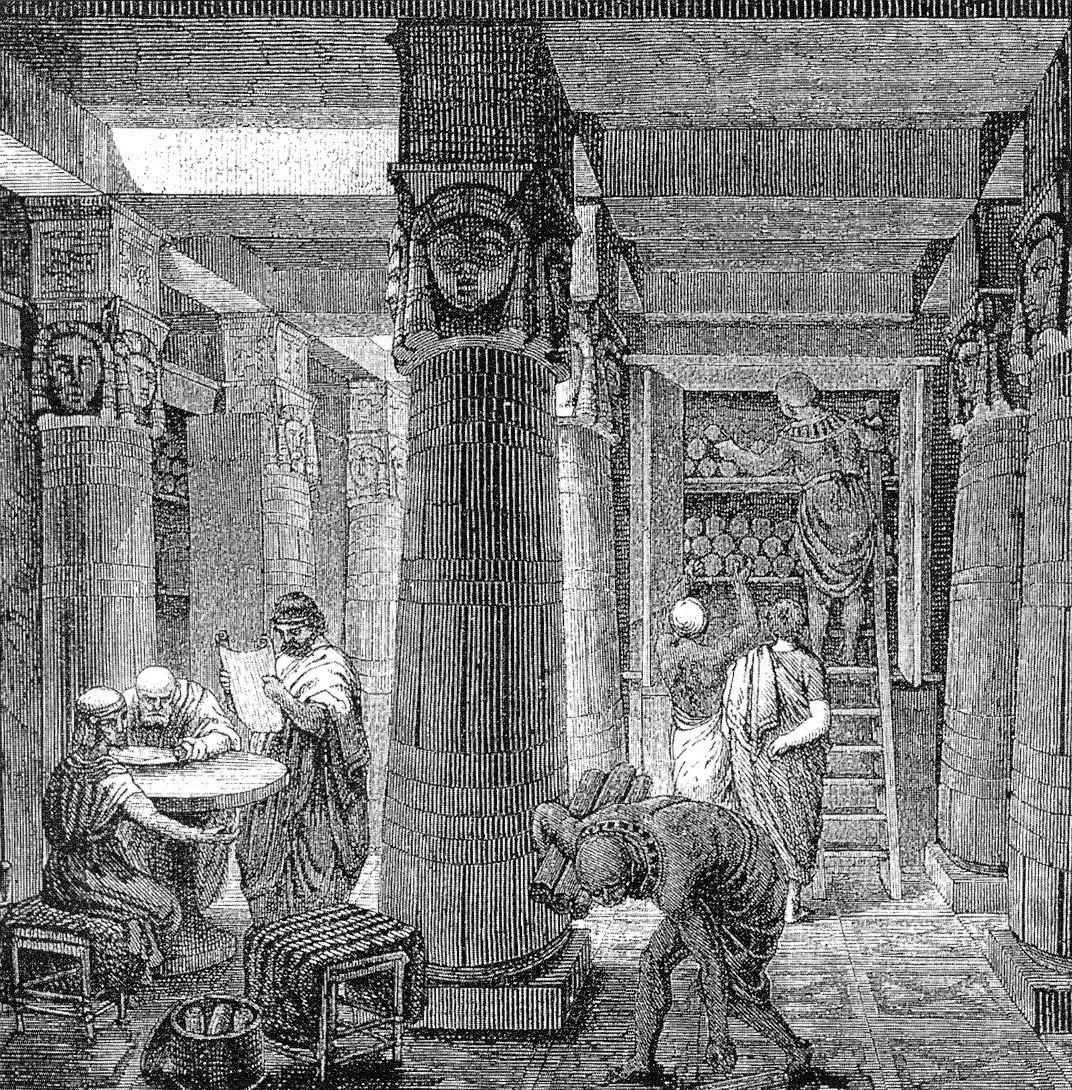Bibliotheca Alexandrina: History, Legend and Resurrection of the Great Library of Alexandria
Kenzy Fahmy
The burning of the Library of Alexandria is one of those events that has been seared into the world’s collective memory, carrying with it a very important lesson about knowledge, power and loss. But things didn’t go down quite as we all think. The story of the great ancient library, and its downfall, is far more complex and nuanced than most people realize. And its resurrection many hundreds of years later might just offer us all a second chance at making up for our past neglect.
The foundation of the library goes back to Alexander and the birth of the city that became his namesake and legacy. Following the death of the great Macedonian conqueror in 323 BCE, his empire was divided among the top commanders of his army, with Egypt (and Alexandria) falling under the rule of Ptolemy I Soter.
Accounts begin to differ slightly here, with some ancient sources claiming that the library was founded during the reign of Ptolemy I. However, the current consensus among scholars is that, while he may have initiated its inception, the library was not complete or functional until the 3rd century BCE under the reign of his son, Ptolemy II.
The Greeks, now in charge of a massive empire left behind by Alexander, wanted to spread their Hellenistic culture throughout their new dominion, and what better way to do so than by controlling knowledge. But the Ptolemies were much more ambitious than that, and what they wanted was to build a collection that housed all the knowledge of the ancient world. Egypt’s central location and papyrus production put them in the perfect position to do just that.
People were dispatched far and wide with large sums of money in search of scrolls, manuscripts and texts of all kinds. Ships that were coming into port at Alexandria were ordered to hand over any texts, which were taken to the library and copied; the copies went back to the ships and the originals were kept at the library. In very little time, they were able to amass enough knowledge to build one of the largest and most impressive libraries in the world, its reputation holding fast for well over two millennia.
Hundreds of thousands of books and scrolls were all housed under one roof, and with them came the world’s greatest scholars, invited and funded by the royal palace with the goal of creating and exchanging more knowledge. It was at the great Library of Alexandria that Greek mathematician Euclid introduced the concept of geometry to the world, and it was here that the earliest measurements of the Earth’s circumference were calculated. Homer’s epic poems were collected and stored here. Appollonius, the famous poet who wrote the epic about Jason and the Argonauts worked as a royal tutor here. The Library of Alexandria was at the center of the scholarly world and this was no small achievement.
The library continued to flourish under the Ptolemies for several generations, but like with so many great things, politics and power were to inevitably infiltrate the sacred space and set in motion the events that would lead to the eventual decline and downfall of the ancient world’s greatest collection of information.
Around 145 BCE, a young and very jealous Ptolemy VIII murdered Ptolemy VII, claiming the throne for himself and, as new rulers so often do, he began to punish and exile all those who supported his predecessor. These included the head librarian at the time, Aristarchus, along with all the foreign scholars who had been studying at the library. Of course, there was nowhere for these scholars to go except to other libraries around the Mediterranean and West Asia, taking with them their knowledge.
Fast forward a hundred years, and we arrive at the time of Cleopatra and Julius Caesar, the siege of Alexandria and the burning of the city. By now, the conflicts between the Ptolemies had become so chaotic and their rule was becoming more and more unstable, falling prey now to a new empire, the Roman Empire.
In the throes of his civil war and after his defeat of Pompey, Caesar landed on the shores of Alexandria, along with a nice chunk of his army, and proceeded to wreak havoc on an already shaky rule. Cleopatra and her brother, yet another Ptolemy, were already in dispute over who should rule Egypt and there were many players trying to maneuver the power into the hands of one or the other. The city came under siege, and in an effort to block the fleet of Cleopatra’s brother, the Roman soldiers set fire to some of the ships at port. Of course, the fire spread past the docks and into the city, eventually reaching the library.
But despite the popular belief that it was this fire that destroyed the library, the damage was minimal. The accounts that describe these events are many and they are conflicting, but we do know that the library was not completely destroyed. In fact, it continued to stand until sometime around the 2nd or 3rd century AD, possibly even later, with accounts claiming that it still existed during the Arab conquests of the 7th century. Some say the Arabs finally destroyed it, but most agree that it was something far more insidious.
For most of the city’s history, both ancient and more recent, Alexandria has been the target of attacks and invasions. It has been the battleground for many wars, and with each battle, came the compulsory destruction. And while the library was no exception, in the end, it was neglect that caused its inevitable downfall. Roman rule was not as preoccupied with amassing knowledge as the Greeks were, and the spread of Christianity did nothing to help the then mostly pagan community.
One regime change after another and general political instability meant that the library was becoming less of a priority. Funds that used to be allocated to the library were now being redirected to more ‘important’ things. In the end, it was bureaucracy and mismanagement that took down the great library, not fire. Which is more tragic, I do not know. But there is an essential lesson to be learned here, and one that seems to apply as much now as ever before.
Today we have a new library, shiny and modern, and possibly just as impressive. Inaugurated in 2002, the Bibliotheca Alexandrina is our chance for redemption. The multi-lingual library is home to four museums, art galleries, a planetarium and restoration labs, not to mention a substantial collection of books (and maps apparently), with books donated from all over the world. In more ways than one, the new library is a perfect tribute to its ancient ancestor.
The idea of resurrecting the ancient library began in the 70s, and in a collaborative effort between Alexandria University, UNESCO and the Egyptian government, plans for the new library started to be set into place. The goal: to put Alexandria back on the map as one of the cultural and intellectual hubs of the modern world. All we have to do now is keep it alive.



